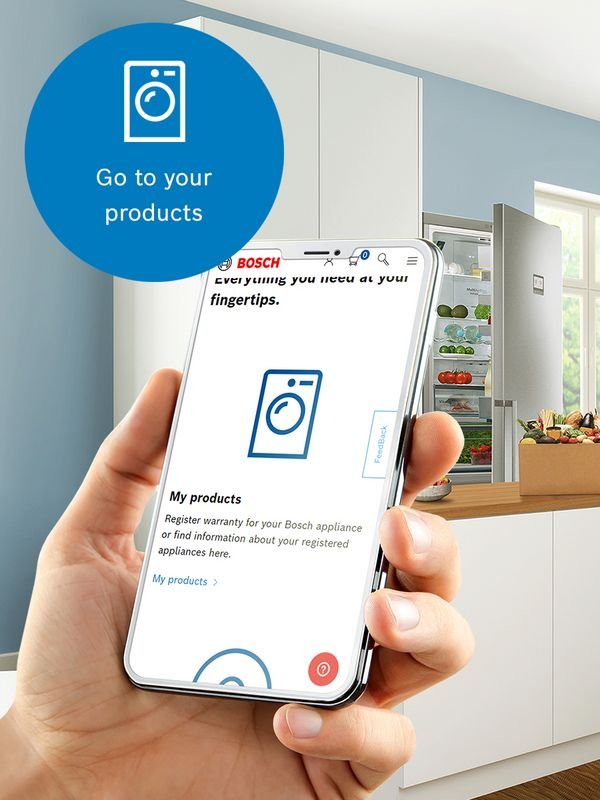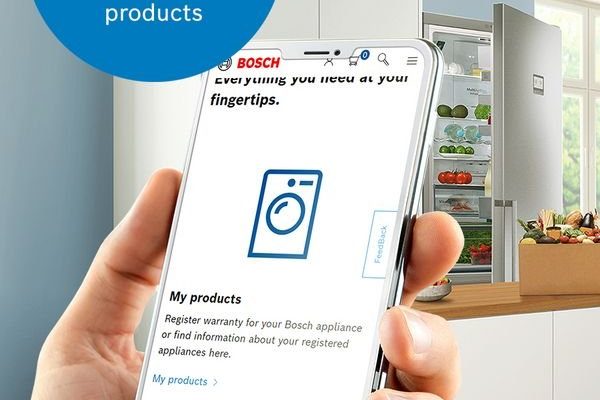
Many people don’t realize how easy it is to accidentally void the warranty on a Bosch laundry appliance. Sometimes it’s an innocent mistake—using the wrong detergent, skipping regular maintenance, or calling the wrong repair tech. Other times, it’s simply not knowing what counts as “approved use.” It’s a bit like trying to keep a houseplant alive: the instructions seem simple, but the details really matter.
In this article, let’s walk through how to keep your Bosch appliance warranty solid, sidestep common pitfalls, and avoid that sinking “why didn’t anyone warn me?” moment. These tips come from real-world blunders, not a stuffy rulebook—so pour a cup of coffee and let’s break it down.
Understanding Your Bosch Warranty: What’s Actually Covered?
Before you can avoid voiding your Bosch warranty, you’ve got to know what it covers. Bosch typically offers a limited warranty on their laundry appliances, covering parts and labor for a set time—usually one year for general repairs, and up to ten years for certain components like the motor. But don’t let those numbers lull you into thinking you’ve got total coverage.
The warranty is sort of like an umbrella: it keeps you dry from normal weather, but it won’t do much in a hurricane caused by user error.
This means Bosch covers *manufacturer defects*—things that go wrong because of how the machine was built, not how you used (or misused) it. So, if your washer door won’t close because of a faulty hinge that came from the factory, you’re good. But if you force it shut and break the latch, you’re probably paying out of pocket.
Another thing: Bosch expects you to use their appliances as intended. If you’re using your washing machine in a business or stuffing comforters meant for a laundromat into it, you might be stretching the definition of “normal household use.” That’s a fast track to voided coverage.
Read (and Actually Keep!) Your Owner’s Manual
Honestly, most people treat the owner’s manual like the tag on a mattress: they know it’s there, but never bother with it after installation. Here’s why that’s a mistake with Bosch appliances. The manual isn’t just a pile of legal mumbo-jumbo. It’s your personal, step-by-step “how not to wreck this machine (or your warranty)” guide.
- Installation guidelines: The manual will spell out the exact requirements for setup—like making sure your washer is level, plugged into the right type of outlet, and not cramped in a closet without ventilation.
- Approved use: There are diagrams and bullet lists inside, explaining what loads are safe, which detergents to use, and even how to sync up cycles without overloading the motor.
- Warning signs: Bosch tells you how to spot problems early. Ignoring these red flags can be just as risky as causing them in the first place.
Put it this way: if Bosch needs to review a warranty claim, they’ll expect you to have followed their instructions to the letter. Lost your manual? Download a digital copy from Bosch’s website and keep it handy—there’s no excuse for flying blind in case you need to troubleshoot, reset, or pair settings.
Only Use Authorized Repair and Service Technicians
You might be tempted to save a little money with a quick fix from a local handyman or try a DIY repair using a YouTube tutorial. But here’s the kicker: using non-authorized repair techs is one of the top reasons Bosch denies warranty claims. In their eyes, only trained, certified professionals know how to handle the delicate code, settings, and parts without damaging the appliance.
Let’s say your Bosch dryer starts throwing a strange error code. You Google it, grab your toolbox, and start poking around inside. Maybe you even manage to reset the machine, but if something goes wrong—or if Bosch later inspects it—they’ll spot that you went off-script. Tampering can erase your warranty faster than you can say “spin cycle.”
If in doubt, always check Bosch’s official service locator to find an approved technician before letting anyone open your laundry appliance.
Plus, Bosch technicians use genuine replacement parts. That matters, because if you pair your appliance with off-brand or universal parts, it’s another fast track to a voided warranty. Think of it like putting a random key in a lock—it might fit, but it definitely isn’t designed for it.
Stick to Approved Detergents, Cleaners, and Accessories
You might be wondering, “Does Bosch really care what soap I use?” The answer is yes—maybe even more than you’d expect. The wrong detergent can cause buildup, sensor issues, and even corrode the inside of your washer or dryer. Bosch usually recommends high-efficiency (HE) detergent for their machines, and warns against certain additives or harsh cleaners.
Here’s why this matters. If your washer breaks down and an authorized tech finds residue from non-approved detergents, Bosch can deny your claim. And if you’re using accessories, like stacking kits or water hoses, make sure they’re Bosch-approved. Using universal or generic accessories might save a few bucks upfront, but it can cause leaks or stress on the drum—which again, puts your warranty at risk.
- Use only Bosch-approved or HE detergents and softeners.
- Avoid bleach unless the manual specifically says it’s allowed.
- Clean dispensers and filters regularly, following the manual’s directions.
It’s a little like fueling a fancy sports car with the wrong gas. Sure, it’ll run for a while—but don’t expect the manufacturer to pick up the tab when it sputters to a stop.
Don’t Ignore Regular Maintenance and Cleaning
You wouldn’t drive your car for years without an oil change, right? Laundry appliances need the same kind of regular TLC. Bosch expects you to keep your washer and dryer in good shape—not just for performance, but also because neglect can be used as a reason to deny warranty coverage.
Regular maintenance includes tasks like:
- Cleaning the lint trap and filters on your dryer after every use
- Running a cleaning cycle on your washer (Bosch usually recommends monthly or every 40 washes)
- Checking hoses for leaks or kinks
- Keeping the drum, door seals, and dispenser drawer clean
Here’s the trick: if you skip these steps and something clogs, leaks, or rusts, Bosch can say you didn’t care for the appliance as required. Even if you call tech support, they’ll walk you through these steps first to see if you can fix it yourself before sending a technician. Think of it as “troubleshooting before troubleshooting”—if you’ve kept up with regular care, your claim will go much smoother.
Document Everything: Receipts, Service Calls, and Maintenance Logs
Let me explain why you should keep a little folder (digital or old-school) for anything related to your Bosch appliances. If you ever need to file a warranty claim, having all your paperwork in order is a huge help. Bosch may ask for:
- Proof of purchase, like the original receipt or invoice
- Records of any authorized service or repairs
- Notes on regular maintenance, dates, and actions taken
Sounds tedious, but it’s like having a car’s service history—it shows you’ve done things by the book. If you don’t have documentation, Bosch could drag their feet or reject the claim outright. A quick note on your phone every time you clean the lint trap or reset a filter is better than nothing. And if you move or sell the appliance, these records make life easier for the next owner.
When in doubt, snap a photo or scan important documents—the more proof, the safer your warranty.
Don’t Attempt Software Hacks, Unauthorized Modifications, or Resets
These days, Bosch laundry appliances are pretty smart. Some have touchscreens, coded cycles, and even remote troubleshooting via apps. It’s tempting to search forums for a “hidden” way to pair your machine with a home automation system, hack the control code for custom cycles, or bypass error messages by forcing a reset.
But be careful—any kind of unauthorized software change, firmware update, or setting tweak (not listed in your manual) could instantly void your warranty. If Bosch inspects the appliance and finds a modified code or non-standard reset, you’ll be left paying for repairs yourself.
Instead, always use official Bosch troubleshooting steps, and if you hit a wall, call their support team. Attempting creative fixes might feel clever, but it’s risky—kind of like trying to update your phone with software from a sketchy website. The risk just isn’t worth it.
What to Do If You Think You’ve Voided Your Warranty (And What Not to Try)
Sometimes, despite your best efforts, you realize you may have slipped up—maybe you used the wrong battery in a smart dryer, synced it with a third-party app, or tried a reset sequence you found in an online forum. Don’t panic, but don’t try to cover your tracks, either.
Honesty is your best bet. When you contact Bosch support, explain what you did. Sometimes the issue can be fixed by an authorized technician, or they might offer a paid repair at a reduced rate. Trying to fib or “erase” what happened is risky—Bosch appliances keep logs of code changes, resets, and certain errors, so it’s surprisingly easy for experts to spot tampering.
If your warranty is officially voided, you can still take these steps:
- Ask about out-of-warranty service rates from Bosch—these are sometimes more reasonable than a local repair shop, and you’ll get genuine parts.
- If you want to try a universal or generic part, remember it’s now at your own risk—don’t expect coverage if something else goes wrong.
- Keep saving your receipts and service records, just in case Bosch offers partial coverage for known defects outside the warranty window.
Final Thoughts: Keep That Safety Net Secure
Protecting your Bosch laundry appliance warranty doesn’t have to feel like navigating a legal minefield. It’s mostly about common sense—read the manual, stick to approved products and services, do the maintenance, and keep your records organized. Whenever you’re tempted to take a shortcut or “upgrade” your appliance with a clever hack, pause and look for an official solution first.
Honestly, the stakes are pretty simple: a little care up front will save you a lot of stress (and money) down the line. Treat your Bosch washing machine or dryer like the quality investment it is, and that warranty safety net will always be there when you need it most.
